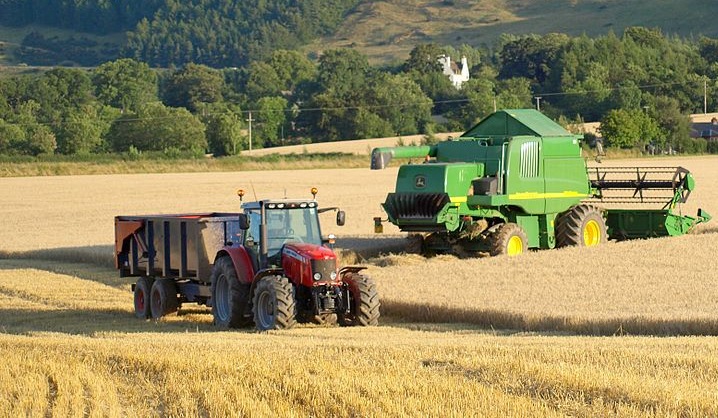
NFU Scotland has written to the European Commission seeking clarity on its proposals for levelling up of area payment rates throughout Europe.
As part of the current CAP Reform process, the Commission has asked Member States to move area payments towards the EU average of €196 per hectare. Scotland’s current average payment is close to €100 per ha.
Largely as a result of Scotland’s low payment rate per hectare, the UK received a convergence uplift in its total CAP budget. On Friday, DEFRA announced that the uplift would be shared equally between all parts of the UK rather than being used to address low payment rates in Scotland. The Union has written to the Commission for its view on that approach. At the same time, the Union has spoken to its legal representatives for their opinion on the CAP budget allocation.
NFU Scotland President Nigel Miller said: “There was deep disappointment and a great deal of consternation that Scottish farming’s share of the UK’s CAP budget remained unchanged, following last week’s announcement on CAP budget allocation. Scotland’s farmers had a justifiable claim that, as a result of receiving the lowest payment rates in Europe, a significant proportion of the uplift should have been used to deliver Europe’s vision for convergence.
“Clearly for the UK, the convergence process has yet to start, but the agreed target of a minimum €196 per hectare in all Member States by 2020 is a solid statement of intent from Europe. The DEFRA CAP budget allocation last week was a missed opportunity to start to deliver on that using new money earmarked for that purpose.
“Convergence of Member State budgets and the internal convergence of area payments within regions is intended to move European agriculture away from support distorted by historical policy and timelines, towards a more level operating environment. Convergence is a big step towards a truly common agricultural policy.
“In opening up the way for a review process in 2016, the Westminster Government has, for the first time, recognised the reality of convergence within the UK. DEFRA has, however, yet to commit to moving funds despite the shift to the new area payment system before that date.
“We have written to the Commission to seek clarification on what safeguards it has in place to ensure transferred budgets are used to deliver true convergence within the recipient Member State.
“The principle of moving towards parity of area support on land being used for similar agricultural production is fundamental to a fair common agricultural policy, and a common economic operating environment for all Europe’s farmers.”
CLA President Harry Cotterell said the CLA appreciated that in an age of austerity agriculture has to take its share of the cuts along with every other sector, and said it was pleased that, overall, CAP budget has not been cut by far more.
Cotterell said: “We believe the fairest approach was simply to have the same percentage reduction across the UK.”
A Defra spokesperson told FarmingUK:
“Scottish farmers will continue to receive the highest payments per farm in the UK, and one of the highest overall in the EU. The 1.6% decrease to the UK's CAP budget will be shared equally across Scotland, England, Northern Ireland and Wales.”
Owen Paterson sought and considered the views of Richard Lochhead and the other Devolved Agriculture Ministers before reaching the decision in intra-UK allocations. During EU CAP reform negotiations, the UK Government secured significant gains for Scotland and ensured that the Scottish Government can implement the CAP according to Scottish priorities.
